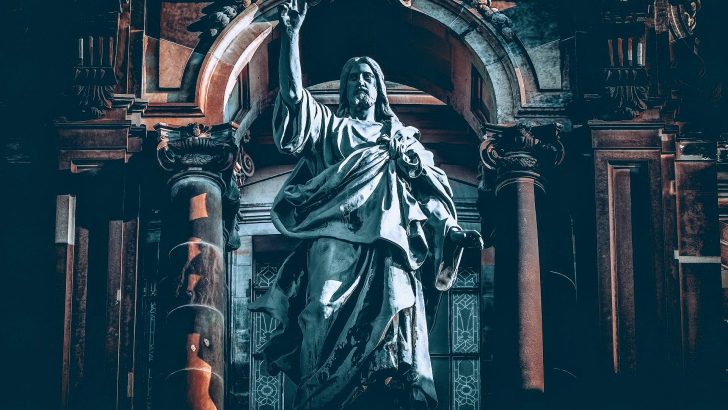The Sunday Gospel
Fr Silvester O’Flynn OFM Cap.
It was an attempt to start an argument with Jesus, to disconcert him, when one of the pharisees asked for his opinion on the greatest commandment. Jesus cut through all their commentaries and debates with a simple and challenging answer: “You must love the Lord your God with all your heart, with all your soul, and with all your mind. This is the greatest and first commandment. The second resembles it: you must love your neighbour as yourself” (Matthew 22:35).
Religious laws meant to be pointers to total love of God and the practical expression of that love in the way we treat people, beginning with ourselves.
It’s no harm to remember that the people who plotted the death of Jesus were the religious leaders.
When religion gets warped it is very dangerous. People have been driven to scrupulosity, bitterness and justification of war by the concept of a severe, judgemental God. It is important to enjoy the loving, merciful God revealed in Jesus Christ. Loving with all your heart recognises God as the driving energy of life.
All your soul makes God the desire of your eternal spirit. All your mind means making space for God in personal prayer each day. All your strength directs you into practical works of charity.
The Trinity of love
The doctrine of the Blessed Trinity reveals that the inner life of God is about interpersonal relationships of love: love given, loved received and love returned. Think of it as a circle or a triangle. We are offered three aspects of love in the Father, Son and Holy Spirit.
God the Father, the source of all life, loved me into life. I was first a thought in the beautiful mind of God before ever I was spoken into life. As St Paul said: “We are God’s work of art, created in Christ Jesus to live the good life as from the beginning he had meant us to live it” (Eph. 2:10). A friend gave me what I consider a work of art: a simple line drawing of a little boy, arms resting on a table, looking out with this message underneath: I know I am somebody ‘cos God don’t make no junk. The grammar ain’t good but the message is brilliant. You are God’s creation and God never made junk.
Accepting forgiveness
People drifted away from God but God did not drift from us. “For God so loved the world that he gave his only Son, so that everyone who believes in him may not perish but may have eternal life” (John 3:16). Jesus is the face of mercy. He sat with the sinners and shared food with them.
What we have to learn is how to accept forgiveness, how to enjoy God’s love. The most wonderful of the parables is the Prodigal Son, the story of a merciful Father who hugs us back and calls for a celebration.
The seven sacraments are celebrations of God’s presence at the key moments of life. The sacrament of Reconciliation should never be a tribunal of enquiry but a celebration of God’s hug of forgiveness.
This sacrament was initiated when the Risen Lord breathed the Holy Spirit on the Apostles. “Receive the Holy Spirit. Whose sins you forgive they are forgiven. Whose sins you retain they are retained” (John 20:23). Retaining means telling someone who has no intention of giving up some serious sin that he/she is blocking God’s desire to forgive.
The Holy Spirit is the breath of God and divine life within us. The Holy Spirit is the power of God’s love transforming us into agents of God’s love to other people. The proof of our love of God is how we respect and care for other people.
Love your neighbour
“Love your neighbour as yourself.” Too many people cannot begin that programme because they have very low self-esteem. People with low self-esteem will be negative towards others too. True self-love is not a preoccupation with self but the joy that comes from knowing God the Father as our Maker, the Son as our merciful Saviour and the Holy Spirit as our Sanctifier. Awareness of our own importance in God’s eyes will spur us into respect and care for all others.
Prayer
Inspired by the words of the gospel, we pray.
May the Church avoid a web of legalism which obscures the joy and love of true religion.
May the lives of Christians today resemble the early Christian community when pagan writers remarked how these Christian love one another.
May our appreciation of God’s love for us inspire us to treat others with deep respect as God’s beloved children
May the thought that we are God’s work of art sustain our hope in these difficult times.
(Add prayers for any local, personal or topical intention.)
O God, our loving Father, we thank you for creating us in love. May it be our joy to pass on your love to others. Through Christ, our Lord. Amen.
Silvester O’Flynn has recently published a book Gospel Reflections and Prayers (Columba Books).



